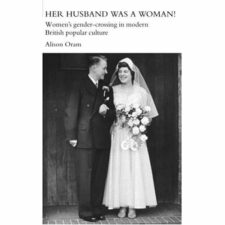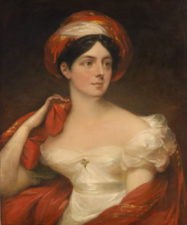The first female Minister of Education: Ellen Wilkinson
On August 3rd 1945 Ellen Wilkinson became the first female Minister of Education of Britain. She had come a long way from her suffragist revolutionary past.
In her speech to the 1946 Labour Party Conference she declared:
When I went to the Ministry of Education I had two guiding aims, and they come largely out of my own experience. I was born into a working-class home, and I had to fight my own way through to the University. The first of those guiding principles was to see that no boy or girl is debarred by lack of means … the second one was that we should remove from education those class distinctions which are the negation of democracy.
During the war, a leading Conservative politician, R. A. Butler, had framed the 1944 Education Act which established free secondary education for everyone of school age. This Act stated that pupils should receive an education relevant to their ‘age, abilities and aptitudes’. Ellen was responsible for implementing a tripartite system of grammar schools, modern schools and technical schools, selection for which was to be by an 11 plus examination.
Ellen was to put into action an Education Act she had not written. The Tribune believed: “[W]e do not doubt that she will strive to instil into it the maximum socialist content, but it is not the Act which she would have fashioned if she could have started afresh.” It was a challenging task. Indeed many people thought it was impossible to introduce any measure of educational reform at a time of economic constraint. Ellen complained to Harold Laski that she had “a hell of a job here because of the shortage of everything and the difficulty of ever getting the Ministry of Works to do anything to time” Certainly Britain’s severe post-war difficulties meant that it was hardly a propitious time for expansion. The country was on the verge of bankruptcy, had lost approximately one quarter of its wealth, lost many of its overseas assets and was dependent on the USA for loans. Ellen had to persuade a reluctant Cabinet to provide the money for reform, chivvy the building industry and train the new teachers. “But I never doubted”, commented Susan Lawrence “that in spite of all the frightful obstacles – want of teachers and want of buildings – that Ellen would find a way, and she did, where a weaker Minister might well have shrunk from all the lions in the path.”
Not everyone welcomed the way 1944 Act. Some in the Labour Party denounced the Act as reactionary and condemned the ways in which the new system divided working class children into academic and non-academic. Others, including Ellen herself, disagreed because they believed that grammar schools helped social mobility by encouraging clever working class children to enter university. Ellen, who had been educated at a grammar school herself, had a strong loyalty to the system which had helped her to succeed.
Ellen’s main concern was to raise the school leaving age to 15. This was not easy as Ellen had to find 5,000 extra classrooms and train 13,000 more teachers for the expected extra 390,000 pupils. The Labour Cabinet, hard-pressed by post-war financial limitations, were disinclined to allocate sufficient money so Ellen had to fight hard for her funding. And when she realised there was no money to build new schools she devised special pre-fabricated huts to accommodate the new pupils. A one-year Emergency Training Scheme provided the teachers. Generous grants were given to ex-service men and women between the age of 25 and 30 to train as teachers in a new one year intensive scheme. They were housed in “hastily improvised colleges which ranged from a Duke’s castle in Northumberland to groups of munition works near Wednesbury.” Ellen faced complaints from Labour MPs and others that the emergency training scheme would dump hordes of ill-trained teachers on the schools.
The expansion and improvement of technical education was high on Ellen’s list of priorities. In her view, a better technical education was needed for Britain’s industrial reconstruction and the revival of the export trade. Ellen aimed to promote new schemes in more than 20 industries including mining, building and the motor trade. Her policy operated on three levels: national, regional and local, buzz words today but refreshingly new at the time. She opened the College of Aeronautics at Cranfield which provided a residential two year post-graduate course for 50 aeronautical science and engineering students. Money again was limited so instead of a brand new purpose built college the Government converted the site of a former RAF base. The Airmen’s Dining Hall was divided up for a library, a lecture hall, two common rooms and a staff room. The barrack blocks were transformed into laboratories and the Sergeant’s Mess into a hall of residence. There was a lot of animosity from industrialists who believed the college would be a “white elephant,” an “unwanted monstrosity” and a “useless burden.” The College eventually developed into a highly successful graduate centre for science, engineering, technology and management: Cranfield University.
By now, Ellen’s health was deteriorating. All her life she had suffered from asthma, bronchitis and other allied complaints. During the war she had been admitted to hospital at least seven times. Despite her worsening condition Ellen persuaded Parliament to pass the 1946 School Milk act that gave free milk to all British school children, she reduced the number of direct grant schools and she instituted University Scholarships to help towards the cost of higher education for those who could not afford to pay. One of her last achievements was opening the Old Vic Theatre School with Laurence Olivier. The school building had been bombed and at the time of opening on January 24th still had no roof. Ellen caught pneumonia and a few weeks later, on February 6th 1947, she died in hospital.
Dr Paula Bartley has been promoting women’s history in schools, colleges and universities for a long time. In the early 1980s she helped found the ground-breaking women in history series for schools published by Cambridge University Press. Her books include The Changing Role of Women (Hodder, 1996), Prostitution: Prevention and Reform in England, (Routledge, 2000), Emmeline Pankhurst (Routledge, 2002) and Votes for Women (Hodder, 3rd edition, 2007). In 2011 she was awarded the Elizabeth Longford grant to help her research the life of Ellen Wilkinson. Her biography Ellen Wilkinson: From Suffragist Revolutionary to Cabinet Minister will be published by Pluto Press.
Note: All references are available from the WHN – blog administrator jocelynne.scutt@cantab.net

